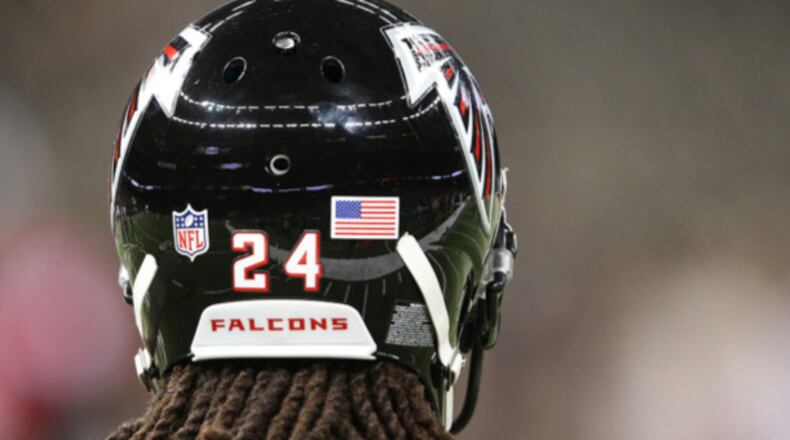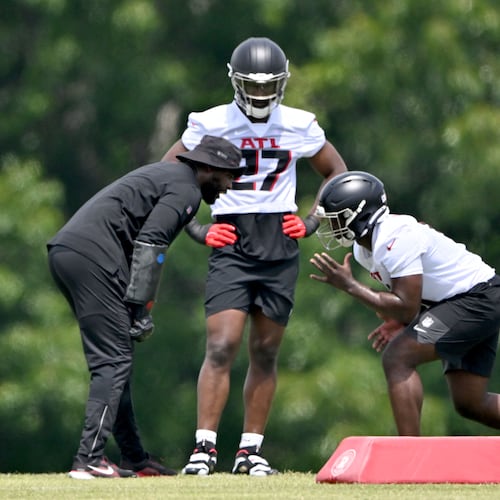Falcons coach Dan Quinn calls running backs Devonta Freeman and Tevin Coleman “a terrific tandem.” Now Freeman may have to go solo Sunday at the Georgia Dome against the Packers, who own one of the top run defenses in the NFL.
Coleman is questionable to play because of a hamstring injury. If he’s out, that leaves Freeman in line to handle most of the work at running back with supporting roles for Terron Ward (just promoted from the practice squad) and perhaps Stevan Ridley (just signed as a free agent).
It’s not the ideal situation for the Falcons (4-3), but they have it better than most teams. Freeman was the featured back in 2015, when he was named to the Pro Bowl for the first time.
And Freeman’s snaps are down significantly as compared with the first seven games of 2015, when he took most of the reps as rookie Coleman worked through injuries.
“What a nice advantage that is now to know that (Freeman) took a good workload, but not all of it through our first seven ballgames,” Quinn said. “He’s equipped for (more), but we’ll lean on the other guys, too.”
The Falcons entered the season planning to use Freeman and Coleman in roughly equal measure. The players worked on their pass protection and receiving skills so that the Falcons could use the entire playbook, regardless of which back was on the field. When accounting for the time Coleman missed when he left Sunday’s game against the Chargers, it’s ended up being a pretty even split: Freeman’s 218 snaps to Coleman’s 185.
Freeman played 378 snaps through seven games in 2015 (Coleman missed four of those games because of injury). Theoretically Freeman should feel fresher than at this point last season, but he rejects that notion.
“I never feel like there is wear and tear on me,” Freeman said.“I feel like it don’t matter about wear and tear. In this sport you are going to get injured and you are not going to feel good every day.”
If Coleman can’t play, the Falcons will lose the advantage of having complementary backs. Freeman is a tough, shifty runner who makes would-be tacklers miss; Coleman’s speed makes him more of a breakaway threat both running and receiving.
The Falcons are set to face a top rush defense for the third time in five weeks. They gained 90 yards on 25 carries with a touchdown vs. Carolina (No. 3 in yards allowed per rush through Week 7) and 52 yards on 18 attempts with a touchdown at Seattle (No. 4).
The Packers rank No. 1 in the NFL in rushing yards per play and game. Football Outsiders, using a metric that evaluates every play and adjusts for down-and-distance and opponent, ranks Green Bay’s rush defense No. 2 behind the Ravens.
“I think the outside linebackers are very good edge-setters,” Quinn said. “They’ve got real size and bulk inside, and then when they play in their nickel package they have a good pressure package, which can knock you out of some run looks. Both the base package and the ‘sub’ package are the different looks that they give but, especially in their base package, I think that’s when their most stout.”
The Falcons favor running outside zone-blocking plays. If they hope to execute those plays against the Packers their linemen will have to be quick to the edge and their running backs decisive.
“It’s definitely a challenge,” Falcons center Alex Mack said. “When teams set the edge well you hope to build some movement and have a cutback. You still want to threaten out there and hopefully come out the front door.”
About the Author
Keep Reading
The Latest
Featured



